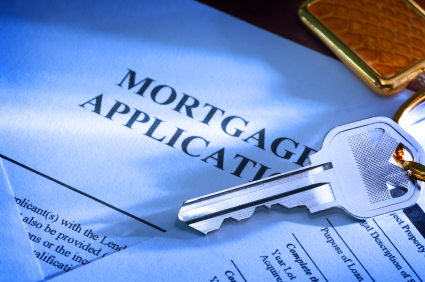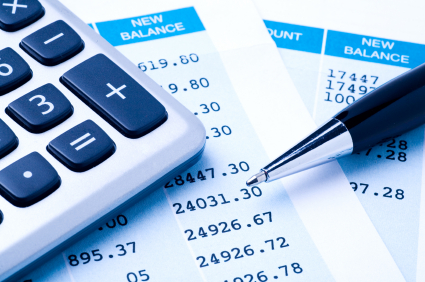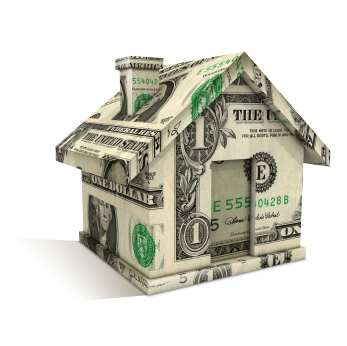
Mortgage companies are pretty picky these days – so they’re being much stricter about enforcing the policies that could keep you from buying your dream home.
Getting approved is harder. And once you are approved, one little mis-step and the loan you thought was ready to close could evaporate.
Here’s how to give yourself the best chance of getting the home mortgage you want:
First – check your credit report and scores. You can do it at no cost right from this site.
Read it carefully to ensure that there are no errors. And if there are errors, get them corrected. However, you don’t have to dispute everything, because some errors won’t have any effect on your scores. The article “When Should You Dispute Your Credit Report”will give you guidelines.
Next, read the “reasons why” section of the report to get suggestions on how you can raise your scores. You may need to pay off some old bill that was in dispute, or you may need to re-arrange your credit card debt to keep one card from using a large percentage of it’s credit line.
Next, the don’ts – and these are important:
- Stop using your cards. Don’t charge anything more until after your mortgage loan is closed. The new refrigerator, the new car, the new clothes, and the celebratory night on the town can wait. Don’t even use your card for gasoline.
- Don’t apply for any new credit – that includes store credit cards that offer you 15% off today’s purchases if you’ll just sign up right now. Even if you don’t charge a thing on a new card, just making application will hurt you. So resist.
- Don’t drain your bank account, either. Put your wants on hold until later. For now, try to let your bank account grow. Remember that your lender will want to see that you have enough money to make a couple months’ payments after you’ve made your down payment.
- Don’t change jobs – lenders want to see a 2 year history at your current job, so even if you think your boss is a twerp, stay put for now. And… don’t switch from a salary to a commissioned position, even within the same company. Just leave things as they are. You can change after your loan is closed.
About that credit card use: You may be wondering why a few hundred dollars on a low balance credit card can hurt you when you’d still be under the magic 30% of use.
It’s because it could alter your minimum payment – and that will change your debt to income ratios. It might not knock you completely out of the running for your mortgage loan, but it could trigger an increase in the interest rate you’ll pay.
Think about this: Just 1/8% increase in the interest rate on a $200,000 loan will cost an extra $15.33 per month. It doesn’t sound like much until you realize that it means an extra $183.96 per year. Over 30 years, you could pay more than $5,500 for the privilege of celebrating your new home purchase before your loan is closed.
Author: Marte
CreditQuick.com

If you’ve been enjoying free checking, you’ve probably never wondered about who was paying for it in your place.
It turns out that just 10% of the population foots most of the bill for checking for the rest of us. In fact, they contribute an average of $1,610 each.
How? By paying overdraft fees. Because they have so many overdraft incidents, this 10% pays about 68% of all overdraft fees, with the other 32% being paid by abut 15% of the population. Three-quarters of banking customers never have overdrafts.
In 2009 bank and credit union customers paid over $38 billion in overdraft fees. But that is about to change.
Beginning July 1 for new accounts and August 15 for existing accounts, banks may no longer automatically provide ATM and debit card overdraft protection. Unless a customer specifically opts in to have overdraft rights, their debit card purchases and ATM withdrawals will be rejected if their funds are insufficient. Overdrafts triggered by checks and ACH transfers will still be automatically covered.
This is bad news for the banks – who were raking in profits from customers who might rack up several overdraft charges in a single day of shopping.
Smart consumers who know they’re prone to poor bookkeeping habits will choose to have their purchases denied rather than pay an extra $39 every time they use their debit card to purchase a cup of coffee!
Experts project that this new regulation will costs banks approximately $7.3 billion annually.
So – of course they are looking for ways to replace those profits. One way is by doing away with free checking.
Most believe that credit unions and small community banks will continue to offer free or low cost checking, but the big banks may only offer it with plenty of strings attached.
For instance, you may have a monthly fee of $9.95, but if you maintain a certain balance, enroll in direct deposit from our employer, or use a variety of bank services, it might be waived. It could also be waived if you have a minimum number of debit card transactions in a month. In this case, your monthly fee can come and go depending upon your debit card usage.
With all the bail outs and give-aways we’ve seen in the last couple of years, I find it interesting that people with poor money skills or low bank balances have been, in effect, subsidizing more affluent citizens all these years. Granted, they’ve been doing so because of carelessness in handling their money, but if they thought about it my guess is that they’d object – loudly.
CreditQuick.com

With foreclosures dotting the landscape across much of America, it can be tempting for consumers with a steady income and good credit scores to purchase “too much house.”
While it might be fun to live in a house that “used to” cost half a million dollars, because you can now buy it for the $200,000 price tag that fits your income, consumers should first consider the other costs and obligations associated with owning that home.
First, the size of the home and the amenities it offers probably mean that heat and lights will cost proportionately more. Maintenance is another issue. The more gadgets and toys, the more things there are to break. The more square footage, the more area that will eventually need to be re-painted or re-papered.
Those are just the added costs of living there. Unless you’re wealthy enough to keep a full staff, there’s work involved too, and that can take away from time you can spend with family and friends – enjoying life.
There’s cleaning – more space means more carpets to vacuum, more surfaces to dust and scrub, more windows to wash. Outside, the larger the yard, the more landscaping tasks to do. And if your new “mansion” includes a pool and/or a hot tub – someone will have to clean them.
More work or more expense – one way or the other, you’ll pay for the luxury.
What about the taxes? Depending upon where you’re buying, they may have been adjusted for the down market. But the economy will improve, and those taxes will rise. Will they be a burden if they double?
Instead of buying to the maximum payment you can afford, why not buy the house that fits you and your family?
Invest in solid construction with the amenities you really want. Choose energy efficiency over flash. Think about the number and size of rooms that you’ll actually use and pick a house that will offer comfortable living instead of constant work.
And those dollars you don’t have to spend on payments? Put them in the bank so you’ll have a cushion against the uncertainties of the economy.
Remember that TV show that renovated homes for people? Here in our community they tore down a “basement house” and built a huge new home for a single man who was raising his niece and nephew. Everyone was thrilled at his good fortune, but the end result was not so wonderful.
After 2 or 3 years he couldn’t keep up. He tried, but his income wasn’t high enough to deal with the day-to-day costs of living in a huge home, nor with the maintenance, or the taxes. And he couldn’t afford help with cleaning. The last I heard, the house was on the market.
Author: Mike Clover
CreditQuick.com

Home equity loans are extremely tough to get done in just about all states. With the drop in values on homes it’s hard to get cash against the value of your home if the value is not there. Back in 2006 some banks were lending up to 100% of the value of your home, and others up to 80%. The laws on equity loans differed between states, but during that housing boom period values were not a problem. Also if you bought a home during the last 5 to 10 years you will have issues getting enough equity out of your home if you financed 100% of the loan to value.
Depending on the type of loan and how hard your state has been hit with falling values, you might find that you owe more than your house is worth. This is a harsh reality around the U.S. in this current housing market.
Another issue is foreclosures. With the new laws in place for appraisals, you might find that a couple of foreclosures in your neighborhood could drop the value of your home by $20 to $30 thousand or so. Banks have the tendency to dump homes for a lot less than what they are worth. This ultimately affects values in the area. This is going on in every city and is a big reason for home values dropping…..
There are also big changes in the appraisal process. With the new laws in place with how appraisals are done, most lenders are finding much stricter appraisals now. In the past you could use the appraiser you had a relationship with, but now the appraiser is picked from a pool that the lender will not have any business ties with. This has stopped the over inflation of values on homes. This process has also caused lots of problems in getting true values as well. The appraiser is now paid less for each transaction because there is a centralized management company getting a piece of the pie. Nether less getting the appraised value in this market makes it tough trying to get a home equity loan.
I have personally had lots of past clients here in Texas wanting to just refinance there homes because of low interest rates, but cannot even get value for a refinance.
It is looking pretty tough out there in the housing market, and I don’t see it getting better for quite some time.
Author: Mike Clover
CreditQuick.com

Free credit score advertisement is all over the web. You are probably wondering which free credit score report is the best offer. We all know that you can go to www.annualcreditreport.com and get your credit report for free with no strings. I also know that you will not get your credit scores for free at the FTC mandated site. To get your credit scores with most sites you will need to either pay for them or sign up on a trial basis to get your scores. If you want to get all 3 credit scores, I recommend getting a credit report from our home page with Idenity Guard. This is the best offer available on the web currently. If you are looking for a comparison site where you can read our reviews on credit reports, you can go to www.freecreditscorequick.com to review all our picks and make your own decision.
In a nutshell we recommend our offer with Identity Guard which provides a credit score from TransUnion, Experian, and Equifax. There are sites like CreditKarma.com that actually gives you your credit score for free, but you don’t get your credit score from the other two bureaus. Also let’s face it, nothing is free. All credit karma is doing is data mining. Once they get your information they will be pounding you with advertisements. So my answer is yes, you need to get your credit report with all 3 credit scores and the best offer on the web currently is Identity Guards credit report offer. If you don’t want to continue with credit monitoring, then cancel within the 30 day trial and there is no charge.
Author: Mike Clover
CreditQuick.com

If your credit has gone south, you may be getting mail from credit card issuers that offer credit cards at outrageous prices – and you may get one or two that sound reasonable.
Beware of what are commonly known as “fee harvester” cards. Under the CARD Act of 2009 these cards are now restricted to charging you “only” 25% of your credit limit in fees during the first year. These can include annual fees, enrollment fees, monthly fees, and more. But since there are no restrictions on interest rates, you could find yourself in a bad situation very quickly.
For instance, one card offers a $200 credit line with an automatic charge of $50 when you take the card. Then it charges 79.9% interest. That’s not a typo – they charge almost eighty percent interest!
Some, however, charge rates that aren’t too much worse than a “normal” credit card. Carrying a balance would be cost-prohibitive, but if you need a card on hand for emergencies or if you’re working on building credit, they might be worth the cost. These cards report to the major credit bureaus, so careful use will raise your credit scores.
Orchard Bank Mastercard®, for instance, charges an annual fee that ranges from $19 to $79 per year, and an interest rate between 14.9% and 28.9%.
Capital One offers a Visa® card with a $1,500 spending limit, a $69 enrollment fee and an annual fee of $69, billed at $5.75 per month. The interest rate is 23.9%
Another card, called the American Octane Black Card, advertises 0% APR for the life of the card and 100% approval, with credit limits from $500 to $10,000. They charge a $99 set up fee which is deducted from your bank account upon approval. Then a $9.95 monthly fee keeps the account open.
A disclaimer at the bottom of their page says: “*American Octane LLC does not in any manner represent or guarantee any sort of credit rating or credit score increase whatsoever.” Further details weren’t available without making application for the card.
This does, however, sound similar to shopping cards such as the USA Gold Shopping card, the Horizon Gold, and the NATIONAL PLATINUM™ cards, which are good only at specified shopping outlets.
These privileges can be expensive. The NATIONAL PLATINUM™ card, for instance, charges a one-time fee of $99 to enroll, plus a monthly fee of $14 – whether you use the card or not.
My guess is that the merchandise offered with these cards is probably priced to offset the fact that buyers don’t pay interest.
After researching these cards for poor credit, my own feeling is that a consumer would be better off choosing a reasonably priced secured credit card. These report to the credit bureaus and thus help increase failing credit scores, and many are available without the high enrollment, monthly fees, and high interest rates.
Author: Mike Clover
CreditQuick.com your credit card and credit report resource.

Secured credit cards are now available from many sources, and in a variety of application fees, annual fees, and interest rates. In every case, the cardholder is required to open a savings account which will become security for the card.
The benefit of carrying a secured credit card is that use is reported to the major credit bureaus. Thus, by maintaining a balance of 30% or less of your available credit, and by paying on time every month, your credit scores will begin to climb.
In most cases, card holders will be eligible to transfer to a non-secured card after a period of responsible use and a zero balance on their account. At that time, the savings account will be released, along with any interest earned.
Some cards pay interest on this account, and some do not. Most will allow the consumer to open the account with a small amount and increase it as needed. The credit limit is always equal to the amount in savings.
As with all credit cards, fees for over limit or late payments vary from card to card, as do charges for ATM withdrawals, extra cards, etc. Following are just a few of the secured credit cards available through application online.
First Option Visa® offers a card with a $59 annual fee and an application fee of $99.95. The advertised interest rate is 19.5%. This card offers a 2% Annual Percentage Yield on your savings, and you can begin with a deposit as small as $300 and can go as high as $5,000.
The Applied Bank® Secured Visa® Credit Card requires a deposit of $200 to $500 in a FDIC insured Applied Bank Deposit Account, which earns no interest. The card itself is protected by zero percent fraud liability.
The annual fee is $50 and the interest rate is 12.99% – a rate that does not change in the event of a late payment. After the first year, a monthly fee of $9.95 will apply.
The Public Savings Bank Secured Visa® card offers a variable interest rate which is currently 11.24% and caps at 18%. It carries a set up fee of $75, and a fee of $25 each time a cardholder increases or decreases his or her credit limit. There is no annual fee.
Cardholders may choose an initial credit limit from $300 to $2,000. This may later be increased to maximum of $5,000. No interest is paid on the savings account which secures this card.
Capital One offers a card with a credit limit of $200 to $3,000, a variable interest rate of 19.8%, and an annual fee of $24. Security deposits do not earn interest.
The Citi® Secured Mastercard requires a deposit from $200 to $5,000 into a CD (Certificate of Deposit) which earns a competitive annual interest rate, currently at 4%. The annual fee is $29 and the variable interest rate is currently at 18.24%.
Wells Fargo® offers a secured card with a $300 to $10,000 credit line for an annual fee of $18 and a variable interest rate which is now at 17.49%. Your security deposit earns no interest.
Author: Marte
CreditQuick.com your credit card and credit report resource.










